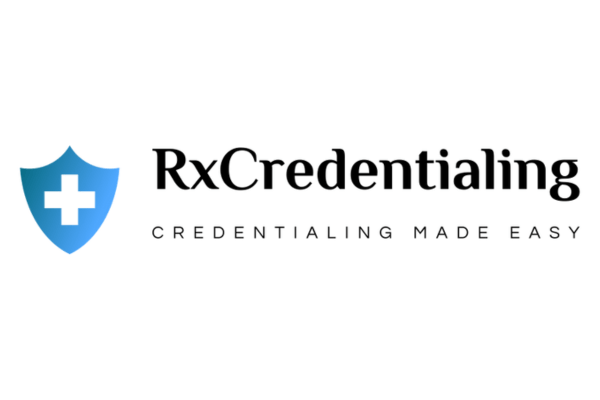Payer contract negotiations are a critical part of your practice’s financial health. They can mean the difference between a thriving business and one that constantly struggles with cash flow. This guide provides a detailed, step-by-step roadmap to help you navigate these complex conversations, giving you the tools you need to secure better reimbursement rates and more favorable terms.
Navigating the Labyrinth of Payer Contracts
When negotiating payer contracts, it's essential to have a clear understanding of your practice's financial goals and objectives. The process is not about a single conversation; it is a strategic effort that begins long before you even pick up the phone. It involves meticulous preparation, data analysis, and a strong value proposition.
By taking a proactive approach, you can move from simply accepting what payers offer to actively shaping the agreements that govern your practice’s revenue. This article will walk you through a proven 10-step process for successful payer contract negotiations. This comprehensive approach will help you increase your practice's profitability and ensure its long-term financial stability.
Whether you're a new practice just starting out, or an established provider looking to optimize your agreements, these steps will provide the framework you need to succeed. Our team at Rxcredentialing understands that strong contracts are the foundation of a healthy revenue cycle, and we are here to guide you every step of the way.
The 10-Step Process for Successful Payer Contract Negotiations
The secret to successful negotiation lies in thorough preparation and a clear strategy. By following these ten steps, you can position your practice for a favorable outcome and build a strong foundation for future growth.
🔍 Step 1: The Pre-Negotiation Audit – Assessing Current Contracts
Before you can ask for more, you must first understand what you currently have. Take the time to evaluate your existing contracts with payers, scrutinizing every detail. Review the reimbursement rates, fee schedules, and any limitations or exclusions. Identify any pain points or areas where you feel your practice is not adequately compensated for its services.
This audit should be more than a simple review; it should be a deep dive. Look for "silent PPO" clauses that allow payers to process claims at a lower rate without your consent. Analyze your payment posting and accounts receivable reports to spot trends where specific payers are consistently paying less or delaying payments. This data will be your most valuable tool during negotiations.
Pay special attention to clauses related to timely filing limits, claim submission rules, and contract termination policies. A thorough understanding of your current agreements will highlight the areas most in need of improvement. It is a critical part of a strong revenue cycle management strategy.
📊 Step 2: Defining Your Financial North Star – Setting Clear Goals
Once you know where you stand, you can define where you want to go. Define your goals and objectives for the negotiation process. Consider factors such as desired reimbursement rates, contract terms, and the inclusion of additional services or procedures. Clearly outlining your objectives will help you stay focused during negotiations and increase your chances of achieving a favorable outcome.
Your goals should be specific, measurable, achievable, relevant, and time-bound (SMART). Instead of "getting better rates," your goal might be "to increase reimbursement for our top 5 CPT codes by 10%." You might also want to eliminate a specific unfavorable clause or get a better turnaround time on claims. Your practice's key performance indicators (KPIs) should heavily influence these objectives.
It's also important to have a walk-away point—a minimum acceptable outcome below which you are willing to terminate the contract. Having a clear bottom line prevents you from accepting a deal that isn’t in your practice's best interest. This preparation is a strategic investment in your practice's future.
💰 Step 3: Data Is Your Leverage – Gathering & Analyzing Key Metrics
Data is your most powerful negotiating tool. To negotiate from a position of strength, gather relevant data and analyze key metrics. Look at your practice's patient volume, payer mix, and revenue generated from different procedures. Identify your most valuable services and highlight their importance when presenting your value proposition.
Quantify everything. Use data to show the payer your value. For example, present statistics on the number of patients you serve in their network, your high patient satisfaction scores, or your low rate of claim denials. Data on your most common CPT codes and the revenue they generate can be used to justify rate increases for those specific services. These details provide tangible proof of your value. If you need help with this, our physician billing services can provide detailed reports.
For example, if you are a chiropractic practice and a specific CPT code for a common treatment is under-reimbursed, you can use volume data to demonstrate how much this is costing your practice. By using concrete numbers, you move the conversation from a subjective request to a data-backed business proposal. This is a critical step in effective denial management.
📚 Step 4: Know Your Partner – Researching the Payer
You can't negotiate effectively without understanding the other side of the table. Thorough preparation is crucial for successful negotiations. Familiarize yourself with the payer's reimbursement policies, fee schedules, and contract terms. Research industry benchmarks and compare them to your current rates. Anticipate potential objections or counterarguments and develop persuasive responses.
Look into the payer's market share in your geographical area and for your specific specialty. You can find information on payer trends and typical reimbursement rates through reputable sources like the Bureau of Labor Statistics or other industry reports. Understanding their financial pressures and how they view your practice can give you a significant advantage. This knowledge is key whether you're a small practice or a large one.
Preparation also involves role-playing the conversation. Think about the common reasons payers deny requests for higher rates. Is it budget constraints? Is it a change in policy? By anticipating these objections, you can have a well-rehearsed response ready. This will allow you to maintain control of the conversation and steer it toward your desired outcome. This strategic foresight is a key part of our corporate services.
📝 Step 5: Crafting Your Compelling Value Proposition
Your value proposition is the foundation of your negotiation strategy. It is what sets you apart from every other provider in the network. Clearly communicate the unique value your practice offers, emphasizing the quality of care, patient satisfaction, and cost-effectiveness. Highlight any specialized services, advanced technologies, or innovative approaches that set your practice apart from competitors.
Go beyond simply saying you provide "great care." Use data and examples to prove it. Do you have a high patient satisfaction score? Do you use a specific technology that reduces recovery time? Perhaps your practice has a lower rate of readmissions for a particular procedure. These are all powerful selling points. For instance, a physical therapy practice might highlight a high success rate for a specific treatment, demonstrating long-term value to the payer.
Your value proposition should also demonstrate your financial benefit to the payer. Can you show that your proactive care helps reduce costly emergency room visits? Or that your efficient medical billing for small practices results in cleaner claims and less administrative work for them? A well-crafted value proposition turns the conversation from "give me more money" to "let's partner to improve outcomes and efficiency." It is the core of a successful negotiation strategy.
👨💻 Step 6: Employing Negotiation Tactics and Strategies
During negotiations, employ various tactics and strategies to maximize your leverage. Start with a collaborative approach, focusing on shared goals and win-win outcomes. This fosters a more productive conversation than an adversarial one. Use active listening to understand the payer's concerns and address them effectively. Consider negotiating on multiple fronts, such as reimbursement rates, contract terms, and the inclusion of new services.
One effective strategy is the "anchoring effect," where you start with a higher initial ask. This sets the baseline for the negotiation and can lead to a better final offer. Don't reveal your bottom line too early, and be prepared to justify every request with the data and value proposition you've already prepared. Maintain a professional and confident demeanor throughout the discussion, as this will help you command respect and be taken seriously.
Be prepared to discuss your practice's specific services, such as telehealth for counselors or insurance eligibility verification, to showcase your comprehensive approach. Payer contract negotiation isn’t a one-and-done deal. It requires patience and a willingness to compromise without sacrificing your core objectives. Remember, you are a valuable partner in their network, and they need you just as much as you need them.
📋 Step 7: Evaluating Proposed Contracts – The Fine Print Matters
Once the initial negotiation is complete, you will receive a proposed contract. Carefully evaluate any proposed contracts from payers. Scrutinize the reimbursement rates, fee schedules, and any additional terms or conditions. Pay attention to any potential pitfalls or clauses that may impact your revenue or practice operations. Compare the proposed contract with your objectives and assess whether it aligns with your desired outcomes.
Some common red flags include "evergreen" clauses, which automatically renew the contract for an extended period unless you terminate it within a very short, specific window. Another is a "unilateral amendment" clause, which allows the payer to change the contract at any time without your consent. These clauses can put your practice at a significant disadvantage. Always compare the new contract's terms against your initial goals to ensure you're getting what you asked for. This is where a healthcare payer contract negotiations specialist can be invaluable.
Don't be afraid to send the contract back with requested changes. This is a common and necessary part of the process. If the reimbursement rates are still not where you want them to be, you can always reopen that discussion. Your diligence at this stage will save you from major headaches and revenue losses in the future. It's also a great time to evaluate your overall medical credentialing costs to see if your practice is as efficient as it can be.
✏️ Step 8: Seeking Expert Legal Assistance
Payer contracts are legally binding documents, and they are often filled with complex legal jargon. If you encounter complex legal issues or need guidance during negotiations, consider seeking assistance from healthcare contract attorneys. They can provide valuable insights, review contracts, and help you navigate legal complexities, ensuring that your practice's interests are protected.
A skilled attorney can spot hidden clauses, explain the legal implications of certain terms, and help you draft counterproposals that are legally sound. This is especially important for multi-physician practices or those dealing with large, complex payers. An attorney's review can be a small price to pay to avoid a disastrous contract that could impact your practice for years. This is part of a holistic approach to securing your practice’s financial future, which also includes services like A/R recovery to ensure you get paid what you're owed.
Even if you feel confident in your negotiation skills, a legal review provides an extra layer of protection. Payer contracts are often one-sided, designed to favor the insurance company, so having an expert on your side to level the playing field is a smart business move. Legal assistance can make the difference between a good contract and a great one.
💬 Step 9: Implementing Contract Changes with Precision
Once negotiations are complete, and you have signed the contract, you must implement the necessary changes to your practice's operations. Ensure that all parties involved understand the revised terms and conditions. Update your billing systems, coding procedures, and any other relevant documentation to reflect the new agreements accurately. This is a critical step that ensures the benefits of your hard-won negotiation are actually realized. It's a common mistake for practices to negotiate a great deal and then fail to implement the new rates or rules correctly, leading to delayed payments and denials.
Start by distributing the new fee schedule and a summary of key changes to your billing staff and providers. Update your practice management software with the new rates and effective dates. Conduct training sessions to ensure everyone understands the new terms and conditions, especially if there are changes to prior authorization requirements or coding rules. This careful implementation will ensure your physician billing services run smoothly from day one of the new contract. A seamless transition prevents unnecessary disruptions to your revenue stream.
A part of this process is also ensuring that any new providers joining your team are properly credentialed with the new terms in mind. This is where re-credentialing and initial credentialing become vital. For instance, for a new nurse practitioner joining your practice, you'll need to ensure their credentialing process accounts for the new contract terms.
📈 Step 10: Ongoing Oversight – Monitoring and Reviewing Contracts
Negotiating payer contracts is not a one-time event; it is an ongoing process. Regularly monitor and review your contracts to ensure that the agreed-upon terms are being upheld. Keep track of reimbursement rates, claim denials, and any issues that may arise. Stay proactive and address any discrepancies or concerns promptly. Payers sometimes make errors in their systems, and a consistent monitoring process will catch these issues early.
Regular audits of your payment remittance can help you identify if the payer is correctly applying the new fee schedule. If you notice a pattern of claim denials for a specific reason, investigate whether it's related to a misunderstanding of the new contract terms. You should be conducting these reviews at least quarterly, if not more frequently. Using a service like ours for healthcare denial management services can make this process far more efficient.
By consistently monitoring and reviewing your contracts, you ensure that you are getting the full value of your negotiated terms. This proactive management prevents small issues from becoming major revenue problems down the line. It's the final, and most crucial, step in a cycle of continuous improvement for your practice's financial health. It’s a key aspect of starting a new medical practice.
Why Rxcredentialing is Your Ideal Partner in Negotiations
Navigating the intricate landscape of payer contracts is not just about understanding the steps; it's about having the right partner to execute them flawlessly. Rxcredentialing specializes in simplifying this complex process, allowing you to focus on patient care while we handle the negotiations. We bring a wealth of expertise and data to the table, ensuring your practice is in the strongest possible position.
Our team of experts has extensive experience in healthcare payer contract negotiations. We help you conduct a thorough audit of your existing contracts, analyze your financial data, and craft a compelling value proposition that payers can't ignore. We are committed to achieving a favorable outcome for your practice, leveraging our knowledge of industry benchmarks and payer policies to secure the best possible rates. A full-service partner like Rxcredentialing can provide the peace of mind that comes with knowing your contracts are in expert hands.
Beyond negotiations, we offer a full suite of services that support the entire revenue cycle, from medical licensing services and insurance credentialing to A/R recovery and physician billing. We provide the comprehensive support your practice needs to thrive. Choosing Rxcredentialing means you're not just hiring a service; you're gaining a strategic partner dedicated to your long-term success. We will help you navigate complex processes like how to credential with Aetna or how to credential with Blue Cross Blue Shield.
Frequently Asked Questions
A pre-negotiation audit is a thorough review of your existing payer contracts, fee schedules, and reimbursement rates. It helps you identify areas of underpayment, unfavorable clauses, and opportunities for improvement before you begin the negotiation process.
It is generally recommended to review and consider negotiating your payer contracts every 1-2 years. However, this can vary based on changes in your practice, market conditions, and the performance of the payer. Consistent monitoring is key.
Key metrics include patient volume, payer mix, revenue by procedure, claim denial rates, and patient satisfaction scores. This data allows you to create a compelling, data-backed value proposition that demonstrates your practice's importance to the payer's network.
While not always mandatory, hiring a negotiation specialist or legal expert can significantly increase your chances of securing a favorable contract. They possess a deep understanding of industry benchmarks, legal pitfalls, and effective negotiation strategies, saving you time and potential revenue loss.
Final Words: Your Path to a Profitable Practice
Negotiating payer contracts that increase your practice revenue requires careful preparation, strategic execution, and a commitment to ongoing oversight. By following the 10 steps outlined in this guide, you can confidently approach negotiations and build a more financially stable and profitable practice. Remember, you are a valuable partner to payers, and with the right strategy, you can secure agreements that reflect the quality of care you provide. If you're looking for a partner to help you navigate this complex process, Rxcredentialing is here to provide the expertise and support you need to succeed.





